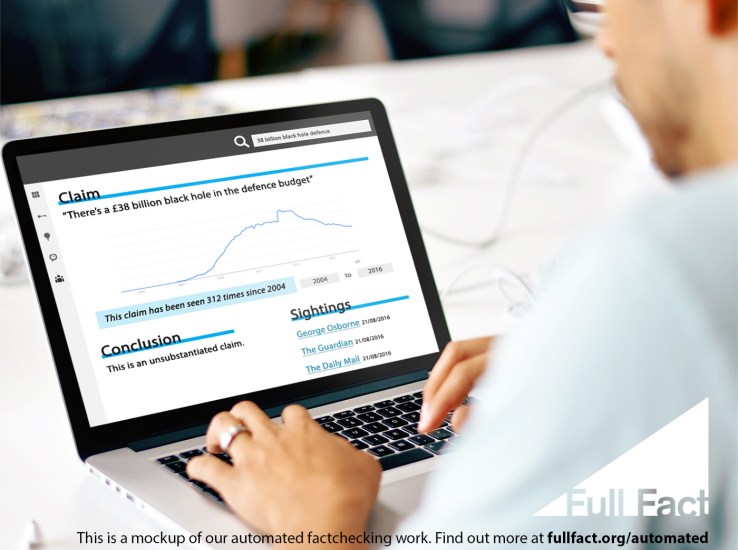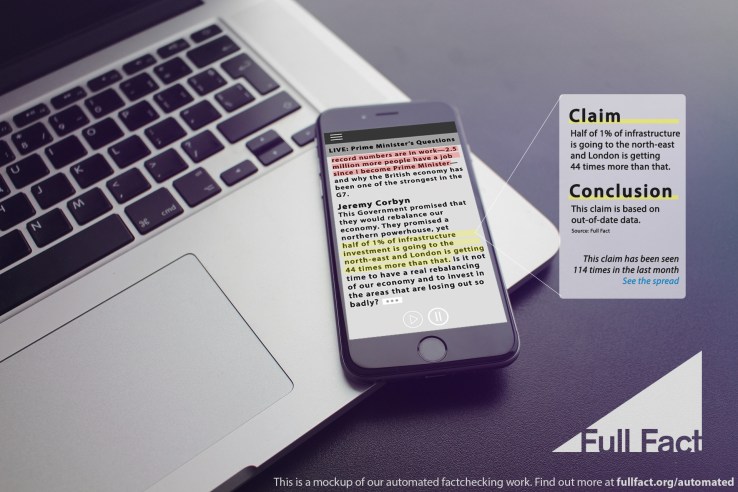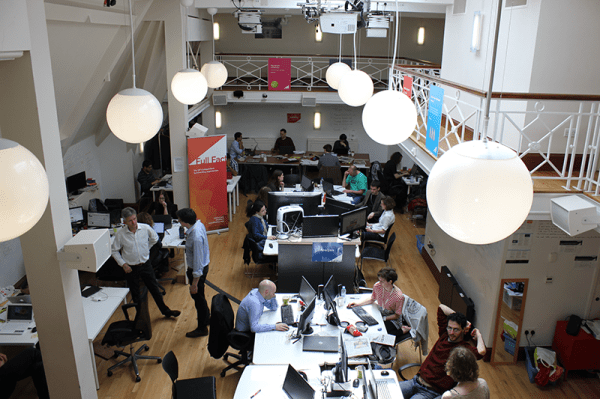After they failed to stop the spread of “fake news” around the U.S. election, Facebook, Twitter, Reddit and Google are facing heightened public scrutiny. Fake news is a threat to democracy, the argument goes, and users of these search and social media platforms deserve better.
Now, a charity in the U.K. called Full Fact has raised €50,000 to make fact checking a story or speech as easy as spellchecking it.
The grant comes from the Google Digital News Initiative, a €150 million innovation fund established by Google in Europe “to support and stimulate innovation in digital news journalism over the next three years.” Google DNI decides which projects to fund in partnership with news publishers across Europe, according to its website. It’s part of a larger pool of 124 startups and projects to receive a total of €24 million in funding from the DNI, announced today.
A €50,000 grant may look trifling compared to the enormity of the challenge, stopping misinformation from spreading online, whether it was erroneously stated or deliberately deceitful.
But Full Fact Director Will Moy and Digital Products Manager Mevan Babakar explained that the charity never raises more than 15 percent of its total funding from a single entity. This helps Full Fact avoid being too tightly affiliated with, or reliant upon, any powerful person or group that it may have to call out with a fact check in the future.

So far, Full Fact has focused its efforts on matters of public concern in the U.K., checking claims in speeches by members of Parliament, claims made by industry or trade associations there and, of course, news reports in print, digital and broadcast media.
It does hope to expand its work to the U.S. market someday, said Moy. But its model is different than popular peers in the states, such as Factcheck.org, PolitiFact and Snopes.com.
American fact-check sites tend to rely on researchers who evaluate statements by public figures, or articles and memes, then rate them on a scale from abject lie to empirical truth. PolitiFact even famously rates politicians and their statements on a “truthometer” scale from Pants on Fire to True.
Full Fact takes a more diplomatic approach, refraining from applying labels. And unlike fact-checking organizations in the U.S., Full Fact doesn’t stop after publishing its findings. It has staff members dedicated to seeking corrections and retractions from outlets or people who put out bad information in the first place.

Full Fact wants to build automated fact-checking tools for journalists.
Moy said, “Some types of claims can be handled as easily as spellcheck, including claims that were fact checked by human beings before. But some claims will always require human judgement, for example, about what’s a fair and balanced way of expressing things, or what methods of analysis should be applied to answer a question about crime.”
Full Fact intends to use its grant money to develop products that automate fact-checking tasks wherever possible, using statistical analysis and natural language processing technologies that are already on the market today.
It wants to put these tools in the hands of willing journalists, so they can reach a verdict about a given claim quickly, before publishing a report. But it also wants to make these tools available to readers and viewers of news.
